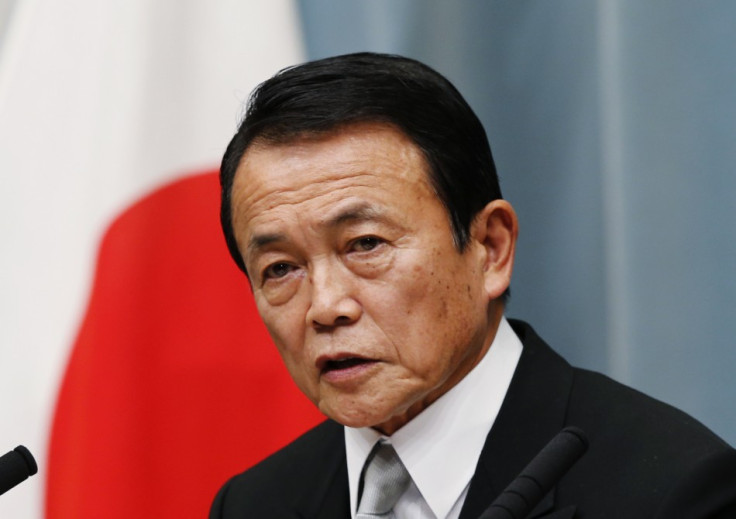Japan’s Deputy PM Taro Aso 'Sorry' for Saying Old People Should 'Hurry up and Die'

Japan's deputy prime minister has retracted his suggestion that old people should "hurry up and die" rather than have their live-saving treatment funded by the taxpayer.
Taro Aso, 72, was speaking at a meeting of the National Council on Social Security Reforms which was discussing the cost of prolonging elderly people's lives with expensive treatment funded by taxes.
Referring to seriously ill patients as "tube people", Aso said he would feel bad knowing his life was draining the country's economy.
He said during the meeting: "Heaven forbid if you are forced to live on when you want to die. I would wake up feeling increasingly bad knowing that [treatment] was all being paid for by the government.
"The problem won't be solved unless you let them hurry up and die."
Realising his comments were sure to cause offence in a country where almost a quarter of the population is aged over 60, Aso admitted some of this comments were "inappropriate".
At a press conference arranged in the aftermath of his comments about the elderly, Aso said: "I said what I personally believe, not what the terminal medical care system should be. It is important that you be able to spend the final days of your life peacefully.
"I expressed my personal views, and it was clear that it wasn't a general statement."
Aso, who doubles as Japan's finance minister and was the country's prime minister from 2008-09, has a history of outlandish remarks and opinions.
He has previously attacked the elderly for the apparent strain their medical attention has on the economy. He was quoted saying in 2008: "I see feeble old people who go to the doctors a lot My medical expenses are a lot lower because I walk and so on...Why should I have to pay for those who just eat and drink and make no effort?"
One of Japan's wealthiest politicians, Aso told an audience of students in Tokyo that poor young men should not get married as he found it difficult to believe "without a salary can be seen as worthy of the respect [of a marriage partner]".
He also once compared the Democratic Party of Japan to the Nazi Party and praised Japan's colonial rule in Taiwan as a "good thing".
© Copyright IBTimes 2024. All rights reserved.






